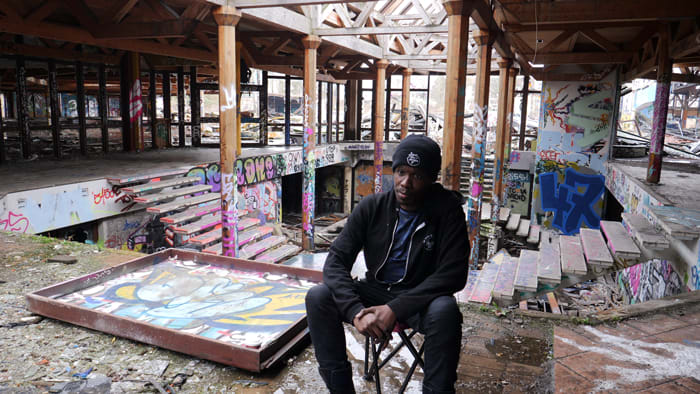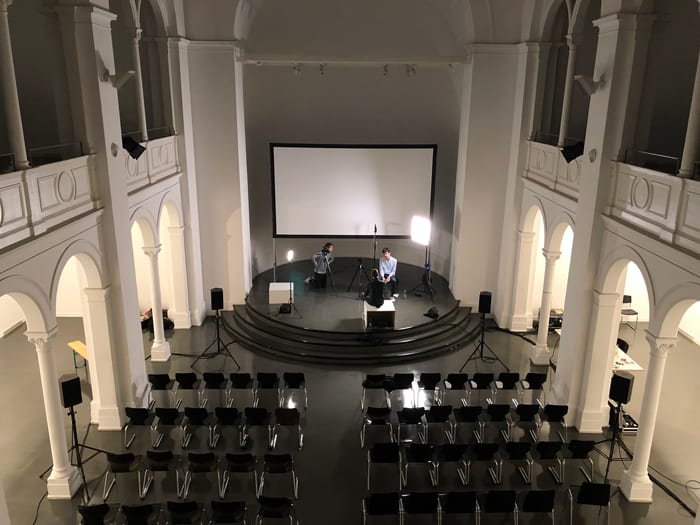At Proton Mail, one pillar of our mission is to educate the public about why online privacy is so important to democracy and human freedom. The creators of the new documentary, Disappear – Cover your online tracks, also care deeply about this mission. Between Disappear and the successful prequel, Nothing to Hide, director Marc Meillassoux has made data privacy more personal and relevant to hundreds of thousands of viewers.
With Nothing to Hide in 2017, the filmmakers explored the costs of mass surveillance in a way that Forbes called(nowe okno) “eye-opening.” The documentary reached hundreds of thousands of people, had over 200 screenings, and was released in seven languages. (The film is available in Creative Commons. Anyone can watch it for free here(nowe okno).)
As Marc prepares for his upcoming debut, Proton Mail is supporting the project with discount vouchers and perks for those who contribute to the Disappear(nowe okno) crowdfunding campaign(nowe okno). We encourage our community to back this important documentary and help spread the word about the dangers of a world under surveillance.
We caught up with Marc to ask him about his work and the future of privacy.
Thanks for everything you’ve done to expose people to privacy issues. What got you interested in pursuing a documentary on this topic?
Disappear – Cover your online tracks is an answer to our last documentary Nothing to Hide. It was screened at over 200 venues, after which we had long discussions with our different audiences about online surveillance and data collection. One question always came up: What can we now do to protect our data?
We started organizing privacy workshops, such as ‘CryptoParties,’ together with various privacy advocacy organizations after the screenings. At some point, we felt that there was a real need for a documentary on digital self-defense strategies.

https://about.me/geminiimatt
Nothing to Hide challenges the common notion that “regular people” don’t have anything a corporation or government would be interested in knowing about. In short, what is your answer to people who say that?
I think Snowden puts it well: “Saying that you don’t care about privacy because you have nothing to hide is like saying that you don’t care about freedom of speech because you have nothing to say.” I would add that information is power and concentrating so much information in the hands of a few organizations or agencies can be dangerous. Besides, people don’t always realize the amount and sensitiveness of the data they share. This is what the whole ‘Mister X’ surveillance experiment was all about in Nothing to Hide: regular young guy saying “I have nothing to hide” and freaking out after discovering the outcome of our 30 days spying on his smartphone and laptop (with his consent).
And did your documentary change anybody’s mind, as far as you know?
Yes, we had many people writing and commenting that they were truly shocked and that they would never use the ‘nothing to hide’ argument again. A few people said, “It’s too late, privacy is dead.” I think that’s because they felt powerless. This was another impulse that led us to the new documentary Disappear.
Tell us a bit about Disappear. What is your goal for this new film, and how is it different from the first?
Nothing to Hide was about advocating privacy, raising questions. Disappear is about how to take back our privacy, offering solutions. The objective is that anyone watching the documentary thinks: “OK, now I can take such and such actions to cover my tracks.” The film is aimed at low-risk to high-risk Internet users: from everyday citizens, professionals and protesters, to journalists and whistleblowers. While some of us assume we are safe today, things beyond our control can happen, like a regime change, and we might be at risk tomorrow.

Have you ever encountered any kind of resistance from people and organizations who don’t like the message of your films?
Not really. We didn’t get answers from Google and Facebook for our interview requests. But actually, a whole bunch of our crowdfunders came from Google and Facebook. We even had intelligence officers coming to the screenings and saying that they were drowning in surveillance data and could not do the job they were supposed to do anymore: securing citizens and institutions.

Given how pervasive surveillance technology is, and given how motivated companies and governments are to keep it that way, where do you see us in 10 or 20 years? Will people demand their privacy back or will the trend continue?
It’s a good question. I hope that Europe will continue pushing privacy standards. The General Data Protection Regulation(nowe okno) (GDPR) is a start. Now we need alternatives to Google, Facebook and Microsoft that respect these standards. Another trend concerns us: that people more and more need to pay for privacy. This could increase existing inequalities, with marginalized populations paying with their data. This is why we want to present privacy-friendly, state-of-the-art solutions as well as free and open-source software solutions.

What about for an individual person who wants to be private but doesn’t want to live off the grid in the forest? Is there hope for that person?
Jean-Marc Manach, an investigative journalist, says everyone should at least have “15 minutes of privacy” every day, a reference to the “15 minutes of celebrity” for everyone predicted by Andy Warhol. I think that’s a reasonable goal to achieve: being able to protect data that could hurt us or others in some way, for example researching an illness online, preventing a malicious hacker from accessing our devices, protecting an information source, or just allowing us an intimate space where we can be ourselves online.
You can learn more about Disappear and contribute to the crowdfunding campaign here(nowe okno).
Those who back the campaign can get, among other perks, $50 gift cards for Proton Mail/Proton VPN, Proton Mail branded Swiss-made webcam covers, and Proton Mail/Proton VPN stickers.
Thank you for your support.
Best Regards,
The Proton Mail Team





